Early Career Researchers
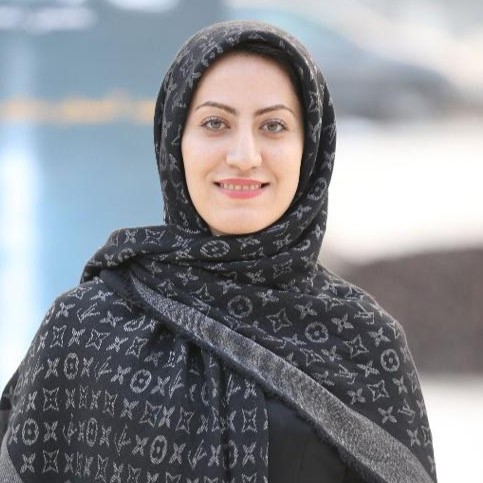
Fatemeh Bonyadi
Iran
Fatemeh Bonyadi is an Iranian scholar and practitioner in the field of communication sciences, with a keen interest in science, technology and innovation communication. Fatemeh’s doctoral research in communication sciences from Allameh Tabataba’i University in Tehran, Iran, delves into the nuanced mechanisms of trust in science and technology, with a specific focus on astronomy and space technology.
Her role as the head of the training committee at the UNESCO Chair on Science and Technology Communication in Iran underscores her dedication to advancing the dialogue between science and society. With over a decade of experience, Fatemeh has played multifaceted roles in science communication, from serving as an astronomy educator in science centers to contributing as science PR professional and science communication researcher.
Through managing “Soha” networks, which brought her the Falling Walls Engage Award 2021, Fatemeh has spearheaded interdisciplinary events that combine astronomy with arts, sports and entertainment, catering specifically to underprivileged youth, refugees, individuals coping with illness and children with disabilities. By integrating psychological support into the project’s framework, Fatemeh ensures that Soha effectively addresses the unique needs of its target groups, fostering a supportive environment for learning and engagement.
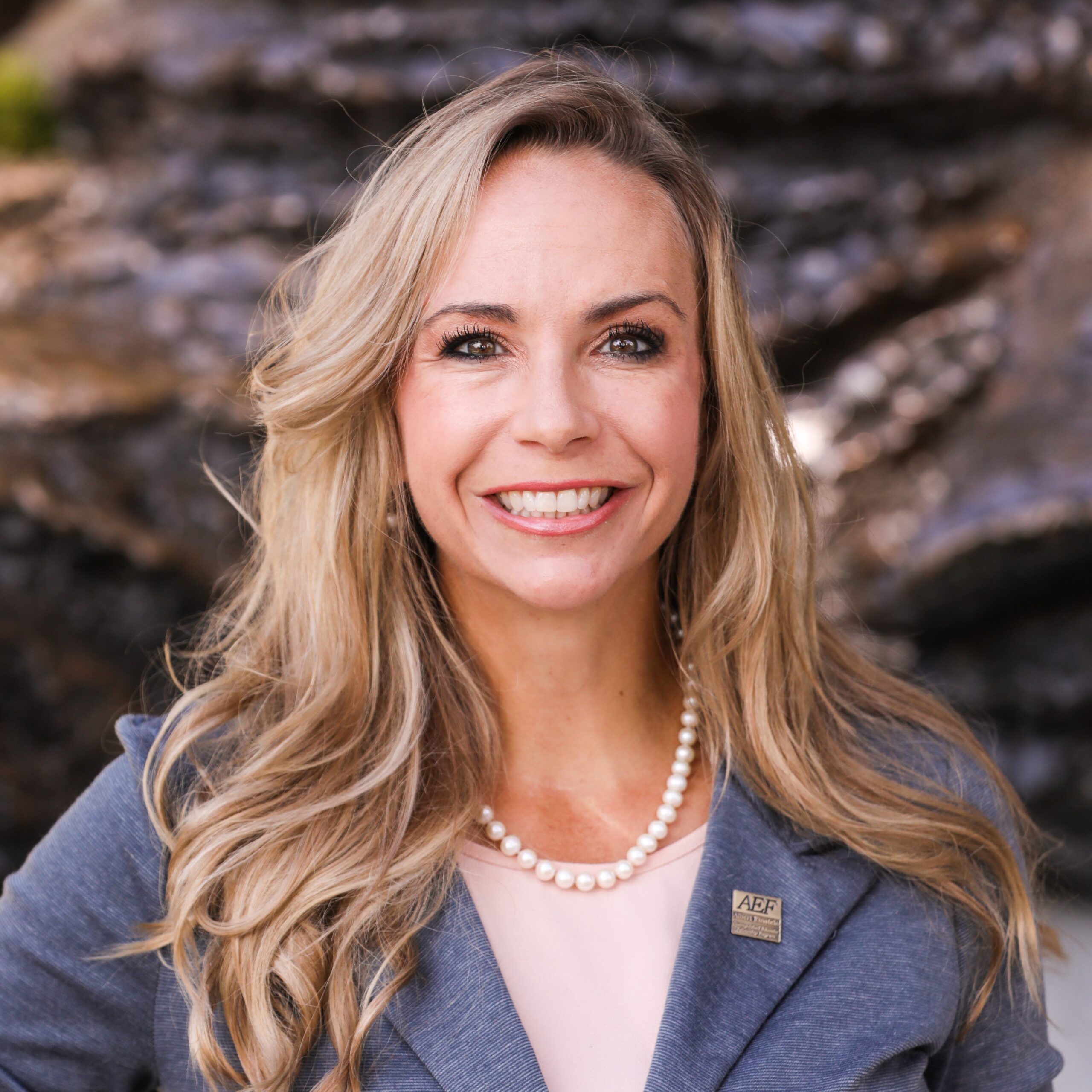
Christine Hirst Bernhardt
United States
Christine Hirst Bernhardt is a Ph.D. candidate at the University of Maryland. Christine brings nearly two decades of experience teaching STEM subjects to grades 7-14, with a passion for utilizing space to cultivate STEM identity. In 2021-2022, she served in Congress as an Albert Einstein Distinguished Educator Fellow to advance STEM education initiatives at a national level. Her passion for all things space fostered the Excellence in Astronomy Teaching award and participation on NASA’s SOFIA mission. Christine identifies and addresses national needs in Earth and space education as the chair of the National Astronomy Education Coordinator team and U.S. member of the Global Leadership in Earth Science Education. Christine has developed programs and curricula such as a high-altitude balloon program, student space symposium and an international space camp. She holds master’s degrees in both space studies and science education. Her doctoral research centers on international astronomy education and teacher epistemologies for justice-oriented practice. She is interested in international science education and using Earth and space topics as a transdisciplinary gateway to STEM in early learning. As a retired professional mountain biker, Christine loves adventure; when she’s not setting records or recovering from knee surgery, she enjoys breaking gender boundaries in a male dominated sport and supporting women in sports.
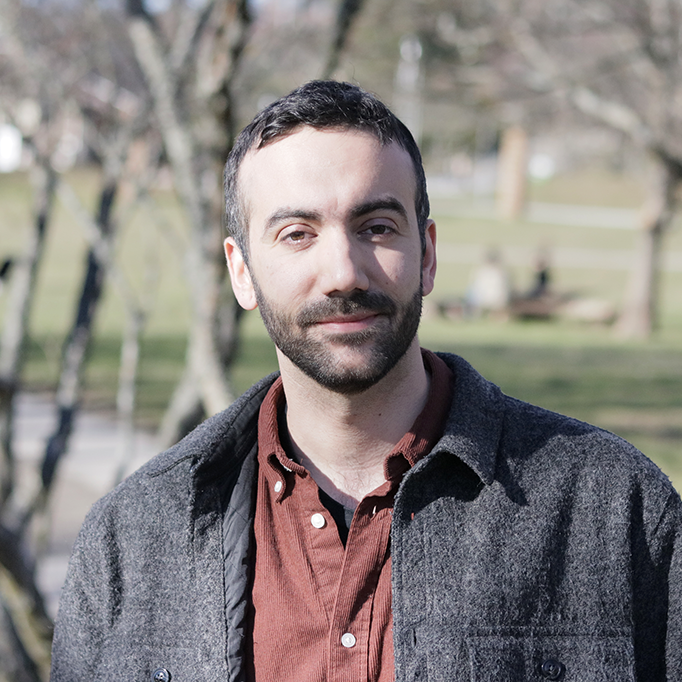
Anastasios (Tasis) Kapodistrias
Stockholm
Anastasios (Tasis) Kapodistrias is from Zakynthos, Greece. He holds a Bachelor of Science in physics (sector of astrophysics) and a master’s in science education from the University of Athens. He has worked as a physics teacher and physics lab instructor for undergaduate students. Currently, he is a Ph.D. researcher at Stockholm University, in the field of astronomy education. Tasis is part of a paired Ph.D. project between the Departments of Teaching and Learning and the Department of Astronomy. Collaborating with a Ph.D. student in galaxy evolution and formation, he investigates how astronomy knowledge is constructed and mediated through the use of representations, ranging from mathematics and code to abstract diagrams and astronomical imagery.
Publications
Kapodistrias, A. & Airey, J. (2024). Rearranging equations to develop physics reasoning.
European Journal of Physics, 45, 035701. https://doi.org/10.1088/1361-6404/ad261c
Conferences
Representations in Higher Education Astronomy: A Semiotic Audit. Forskning om högre
utbildning (FoHU), Stockholm, Sweden, May 11-12, 2023.
https://urn.kb.se/resolve?urn=urn%3Anbn%3Ase%3Asu%3Adiva-217080
Representing the Cosmos: Affordances of disciplinary specific semiotic resources in
Higher Education Astronomy.11th International Conference on Multimodality (ICOM 11),
London, September 27-29, 2023.
https://urn.kb.se/resolve?urn=urn%3Anbn%3Ase%3Asu%3Adiva-221770
Rearranging equations for Physics reasoning; Implications on Physics Teaching &
Learning. Lärarkonferens, Stockholm, Sweden, March 14, 2024.
https://urn.kb.se/resolve?urn=urn%3Anbn%3Ase%3Asu%3Adiva-227479
“Are these pictures real?” The aesthetics of astronomical images and their educational
consequences. Lärarkonferens, Stockholm, Sweden, March 14, 2024.
https://urn.kb.se/resolve?urn=urn%3Anbn%3Ase%3Asu%3Adiva-227480
Popular Science Talks
From The Beatles to the CMB: Making the Invisible Visible in Astronomy Representations.
Nordic Institute for Theoretical Physics (Nordita), Stockholm, Sweden, November 3,
2023. https://scientifika.se/talk/2023/11/03/
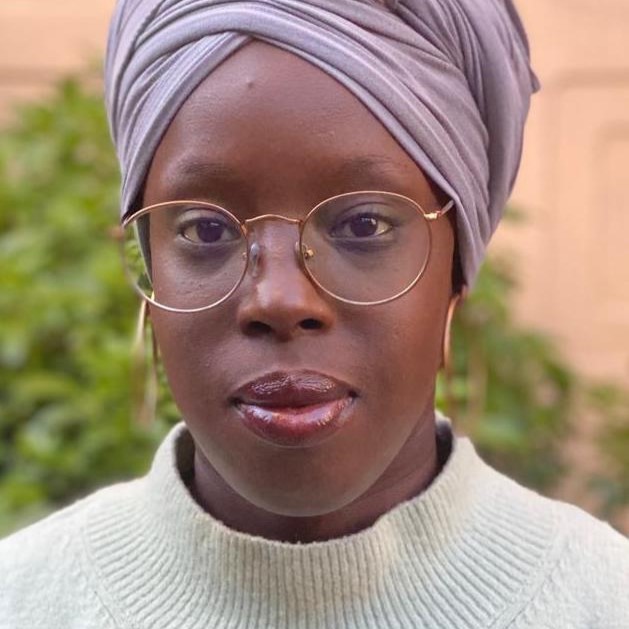
Fatoumata Kebe
France
Fatoumata Kebe has completed a Ph.D. in astronomy at Sorbonne University on space debris, which are the remains of human activity in space accumulated over time. She was trained in space engineering for a year at the University of Tokyo. Passionate about passing her knowledge, she has written three books, two focused on the moon (“La Lune est un roman” and “Lettres à la Lune”) and the last one on the celestial objects photographed by the latest space telescopes (“Au-delà du ciel”).
Fatoumata was the co-chair of the International Astronomical Union Junior Members working group (term : 2018-2021). This working group is devoted to individuals who have completed a Ph.D. in the field of astronomy no more than five years ago before joining the union. It focuses on topics that are crucial to early career astronomers across the globe.
Fatoumata also dedicates her time and energy to inspire vocations through “Ephemerides”, an association she founded 10 years ago, which provides space and astronomy related activities mostly to people living in the disadvantaged areas of Paris region and Bamako. Her main goal through her association is to help young people embrace their ambitions and accomplish their dreams.
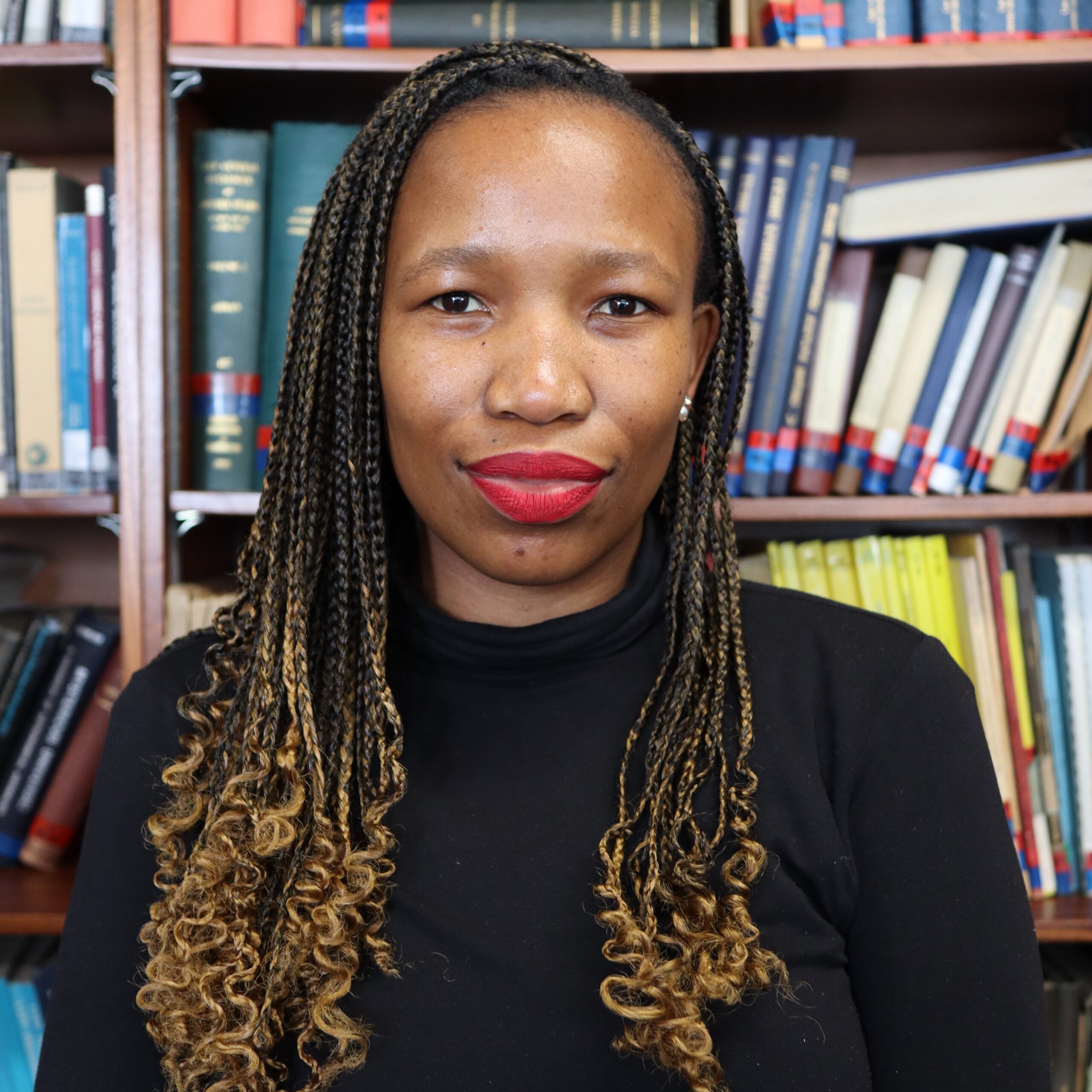
Tshiamiso Makwela
South Africa
Tshiamiso Makwela obtained her Ph.D. in astronomy from the University of Cape Town. Currently, she is a postdoctoral fellow at the International Astronomy Union (IAU); Office of Astronomy for Education (OAE) at the Max Planck Institute of Astronomy (MPIA) Haus der Astronomie, Germany; and the Department of Astronomy at the University of Cape Town (UCT), South Africa. She has keen interest in astronomy education research, where she investigates different aspects of students’ engagement with astronomy phenomena. Tshiamiso’s work is characterized by a deep commitment to creating opportunities for meaningful engagement with the rich astronomy content for all.
As part of her IAU OAE work, Tshiamiso coordinates the Teacher Training Program, which is aimed at improving the teaching and learning of astronomy in primary and secondary schools. Giving an opportunity for astronomers, teachers and other people working in astronomy worldwide to collaborate in developing a workshop for their local teachers and thus enhancing their science classrooms practices. This is also a mission to convince different ministries of education to view astronomy as a science and not just a hobby, and advocate for its inclusion in their school curriculum.
As part of her commitment to issues of diversity, inclusion, equity, equality, etc., Tshiamiso served as a co-chair of the UCT astronomy department transformation and inclusivity committee. In 2019, she was a volunteer for the IAU Molo Mhlaba school for girls astronomy outreach, of which won the IAU women and girls in STEM award. She was also named as one of the inspiring 50 women in science in 2020, recognising her contributions in science, astronomy and education.
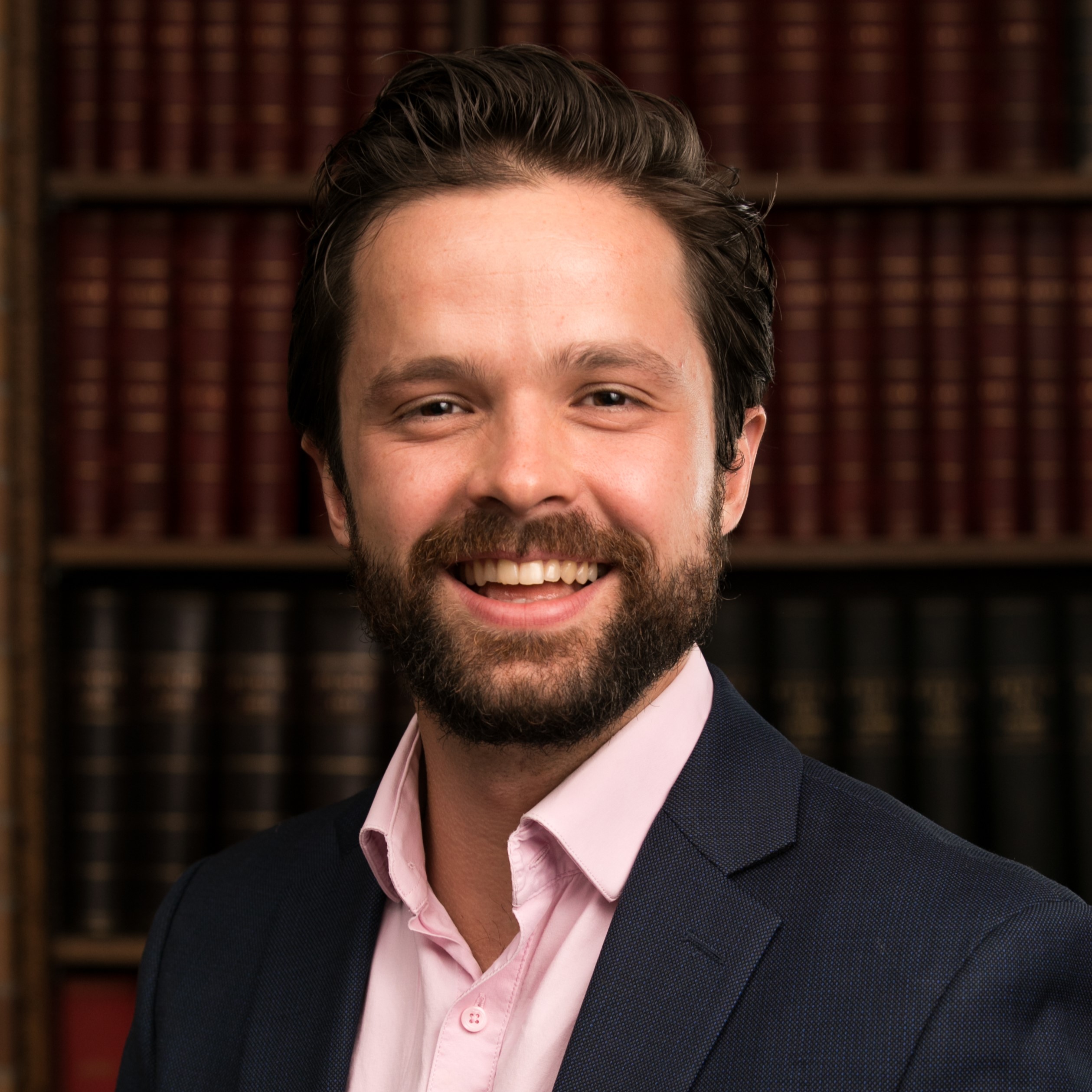
Michael O’Shea
Canada
Michael O’Shea is a professional educator, amateur astronomer and qualitative researcher specializing in diversity, equity, inclusion, decolonization (DEID) questions, in education — particularly in informal science settings. His published research has explored DEID questions in access to higher education, students’ sense of belonging in higher education settings and critical geographies of astronomy education access.
A committed scholar-practitioner, Michael is also an educator and higher education administrator, having worked in a variety of roles to support student access and success in higher education. He co-founded #popscope, an urban movement that aims to reconnect communities to the night sky — and to each other — by hosting free, “pop-up” astronomy nights in public spaces. The group recently celebrated its #popscope’s 10th anniversary. Since 2014, the group has served 21,400 guests at nearly 500 events in a variety of urban spaces often overlooked by other outreach groups, including subway stations, brightly lit sidewalks and busy street corners.
He holds a Bachelor of Arts (public policy analysis) from Pomona College, a master’s (higher education) from the University of Pennsylvania, and a Ph.D. (higher education) from the University of Toronto. He was a Fulbright student (2011), New Leaders Council fellow (2017), and junior fellow at Massey College (2018-2021).
His published work on astronomy education, and diversity, equity and inclusion has appeared in The Walrus, National Post, Hill Times, the Chicago Sun-Times, Journal of Canadian Higher Education, University Affairs, Irish Echo and Irish American News.
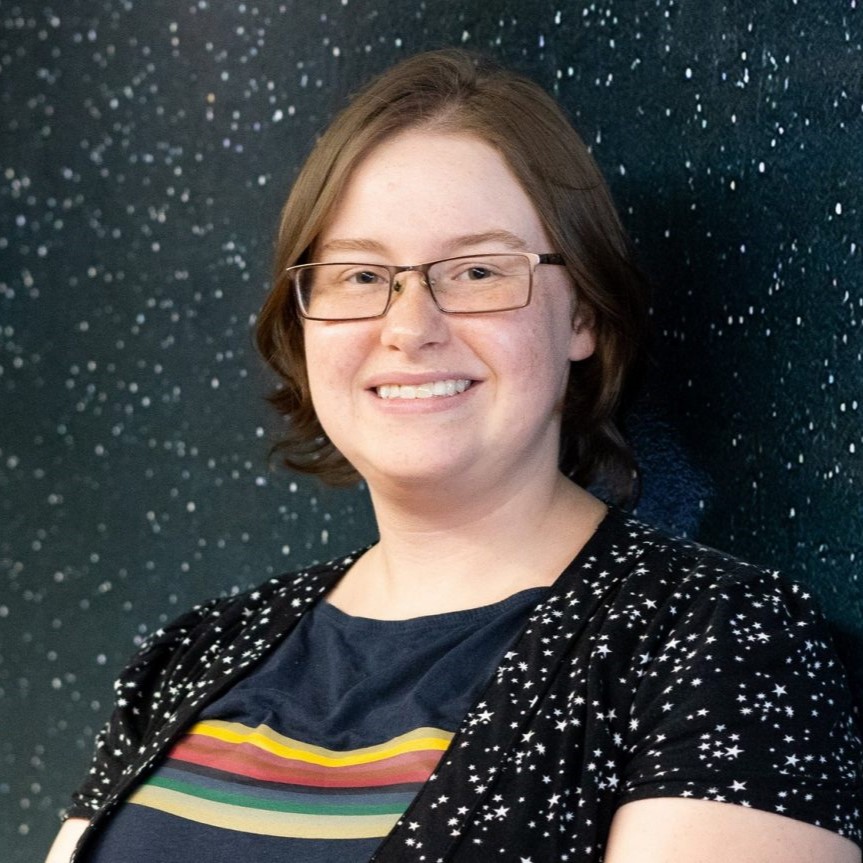
Emily Peavy
United States
Emily Peavy is the education and engagement senior assistant at the International Gemini Observatory operated by NSF NOIRLab, based in Hilo, Hawaiʻi. Emily is a graduate of the University of Hawaiʻi at Hilo with a Bachelor of Science in astronomy and a master’s in education. With her master’s, she focused on free-choice learning in the planetarium environment and compared the educational and entertainment values of live planetarium programming to pre-recorded planetarium programs. In a previous role, Emily managed the programming and technical equipment of the digital planetarium at ʻImiloa Astronomy Center, where she worked alongside other science and cultural educators to connect place-based science with the unique culture and community of Hawaiʻi.
While working as an astronomy educator in Hawaiʻi for over a decade, Emily is interested in the role and impact of the astronomy industry within the remote communities where observatories operate; especially considering the socioeconomic and ethnic diversities of these communities. What are the perceptions of community members towards both astronomy as a science and as an industry? How well does astronomy interface with these communities and how can it be improved? Can astronomy support NGSS learning in community schools? Can the astronomy/science industry be a path out of poverty?
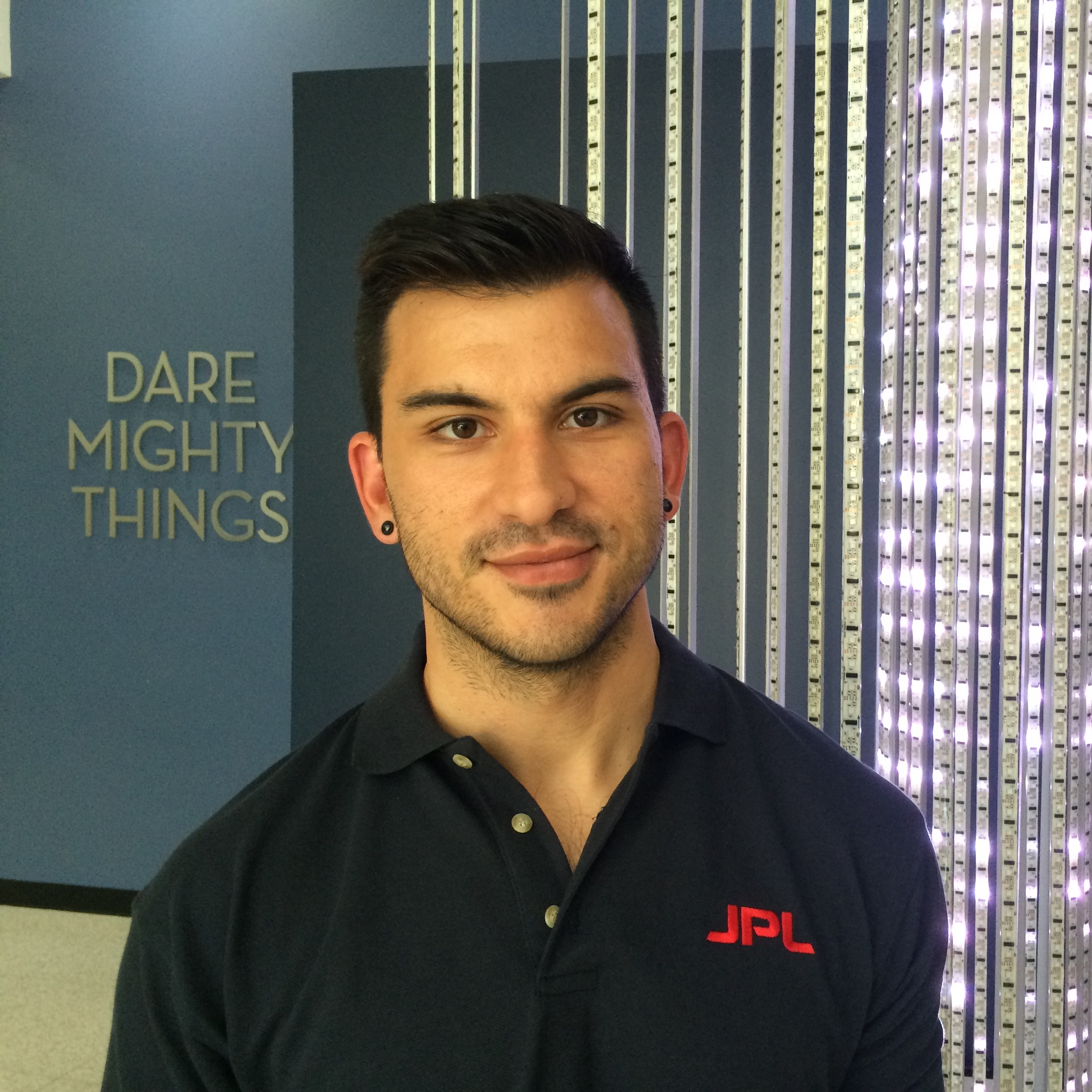
Brandon Rodriguez
United States
Brandon Rodriguez is the educator professional development specialist at NASA’s Jet Propulsion Laboratory. With a background in chemistry, Brandon worked as a research scientist for several years, making bio-plastics for the Dow Chemical Company before finding a passion for education. He shifted his career away from the private sector and into the classroom via teaching seven years of high school and college chemistry and physics. He then extended his teaching role to preparing preservice teachers by teaching graduate-level education courses, assisting future teachers bring engaging science to their own classrooms. This led him to a position in the Education Department at JPL in Pasadena, California. In his role, Brandon gets to live in ‘both worlds’, performing astronomical research in areas such as ancient asteroid impact signatures and young stellar object formation via IR astronomy, while also writing curriculum and leading professional development for educators.
During his eight years at JPL and alongside his incredible team, he has conducted hundreds of workshops for students and teachers around the country, organized the televised programming for the Perseverance landing in 2021, and published dozens of classroom activities for educators everywhere.
Brandon is an avid traveler, having visited over 40 countries and all seven continents. As a loud advocate for nerd culture, his happiest moments are spent reading science fiction, watching “Star Trek” with his colleagues, and eagerly plotting his next Dungeons and Dragons session.
